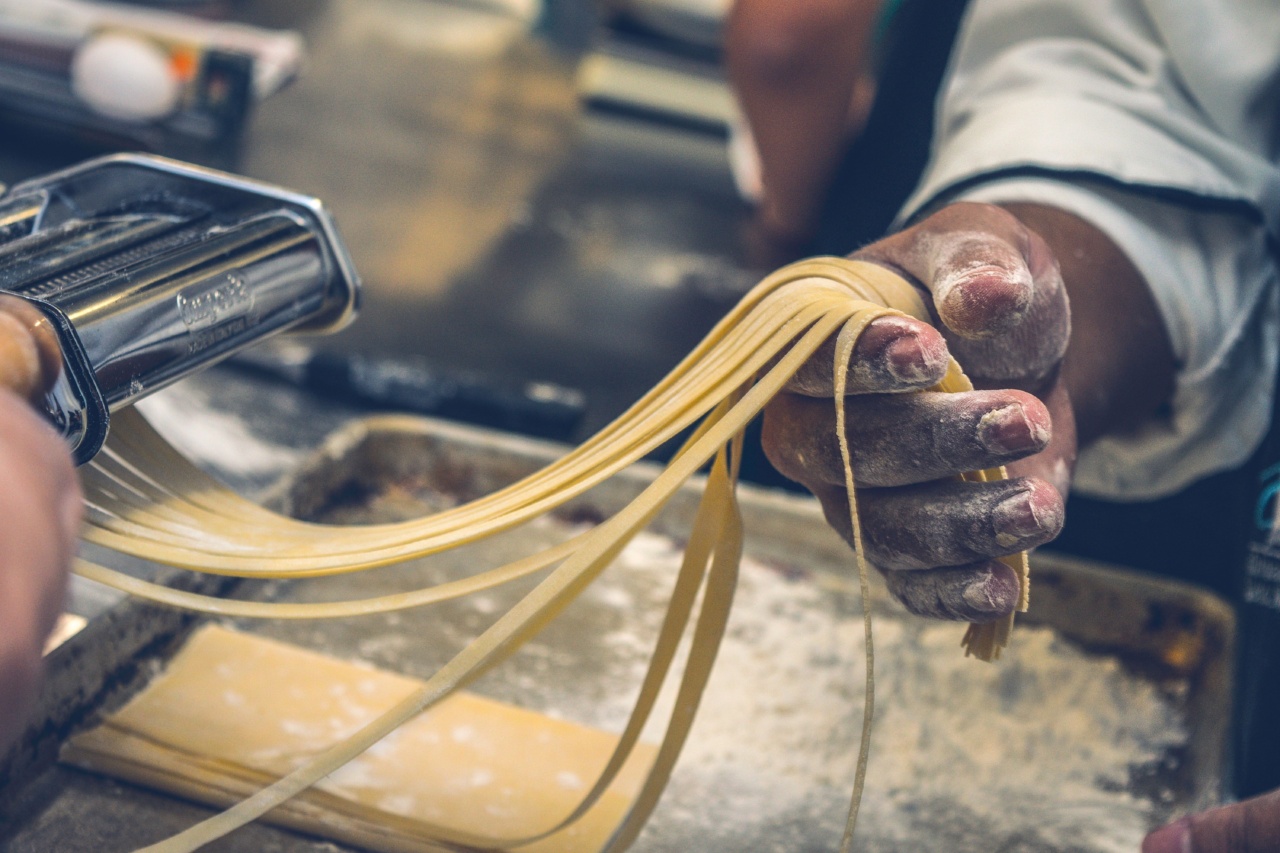For centuries, pasta has been a staple of Italian cuisine, loved by people all around the world. It’s versatile, delicious, and can be prepared in countless ways.
However, recent research conducted by Italian scientists has raised concerns about the impact of pasta on our health and strength. Let’s take a closer look at these findings and the potential implications.
The Link Between Pasta and Energy Levels
One of the main concerns raised by the Italian research is the effect of pasta on energy levels. According to the study, consuming large amounts of refined pasta may lead to a spike in blood sugar levels, followed by an energy crash.
This can leave individuals feeling fatigued and lethargic.
Additionally, pasta is a high-carbohydrate food, and excessive consumption of carbohydrates can lead to weight gain and obesity. This can further drain energy levels, making individuals feel weaker and less motivated to engage in physical activity.
The Impact on Muscle Strength
Another aspect explored in the Italian study was the potential impact of pasta on muscle strength.
Researchers found that individuals who primarily consumed refined pasta showed poorer muscle strength compared to those who followed a balanced diet with a variety of protein-rich foods.
Protein is essential for muscle growth and repair, and pasta is generally low in protein.
This lack of protein intake may impede muscle development and contribute to overall weakness in individuals who rely heavily on pasta as their main source of carbohydrates.
Alternative Approaches to Carb Consumption
While the Italian research raises concerns about the impact of pasta on our health and strength, it’s important to note that not all carbohydrates are created equal.
Consuming complex carbohydrates, such as those found in whole grains, fruits, and vegetables, can provide a more sustained release of energy and offer various health benefits.
Replacing refined pasta with alternatives like whole wheat pasta, quinoa, or legumes can help individuals maintain stable energy levels throughout the day.
These alternatives are often higher in fiber and protein, providing a more well-rounded nutritional profile.
The Importance of Portion Control
Even if we choose healthier alternatives to traditional pasta, portion control remains crucial. Overindulging in any type of food, including pasta, can lead to weight gain and hinder overall health and strength.
It’s necessary to consume pasta in moderation and ensure a balanced diet that includes various nutrient-rich foods.
It is also worth considering the cooking method when it comes to pasta. Opting for al dente pasta that is not overly cooked helps maintain a lower glycemic index.
This means that the pasta is digested more slowly, resulting in a more gradual release of energy and avoiding sudden spikes in blood sugar levels.
The Mediterranean Diet Approach
Italian researchers also highlight the importance of adopting the Mediterranean diet, which is known for its health benefits.
This diet emphasizes whole grains, vegetables, fruits, legumes, fish, and lean meats, while limiting refined grains and processed foods. In this way, individuals can enjoy the pleasures of pasta while maintaining a well-rounded and nutritious diet.
Conclusion
The Italian research investigating the impact of pasta on our health and strength has shed light on important considerations.
While pasta remains a beloved and versatile food, it is essential to be mindful of portion sizes and balance it with other nutrient-rich foods.
Choosing alternatives like whole wheat pasta and incorporating a variety of complex carbohydrates into our diets can contribute to sustained energy levels and overall well-being.
By adopting a Mediterranean-inspired approach to eating, we can continue to enjoy pasta as part of a healthy and balanced lifestyle.































